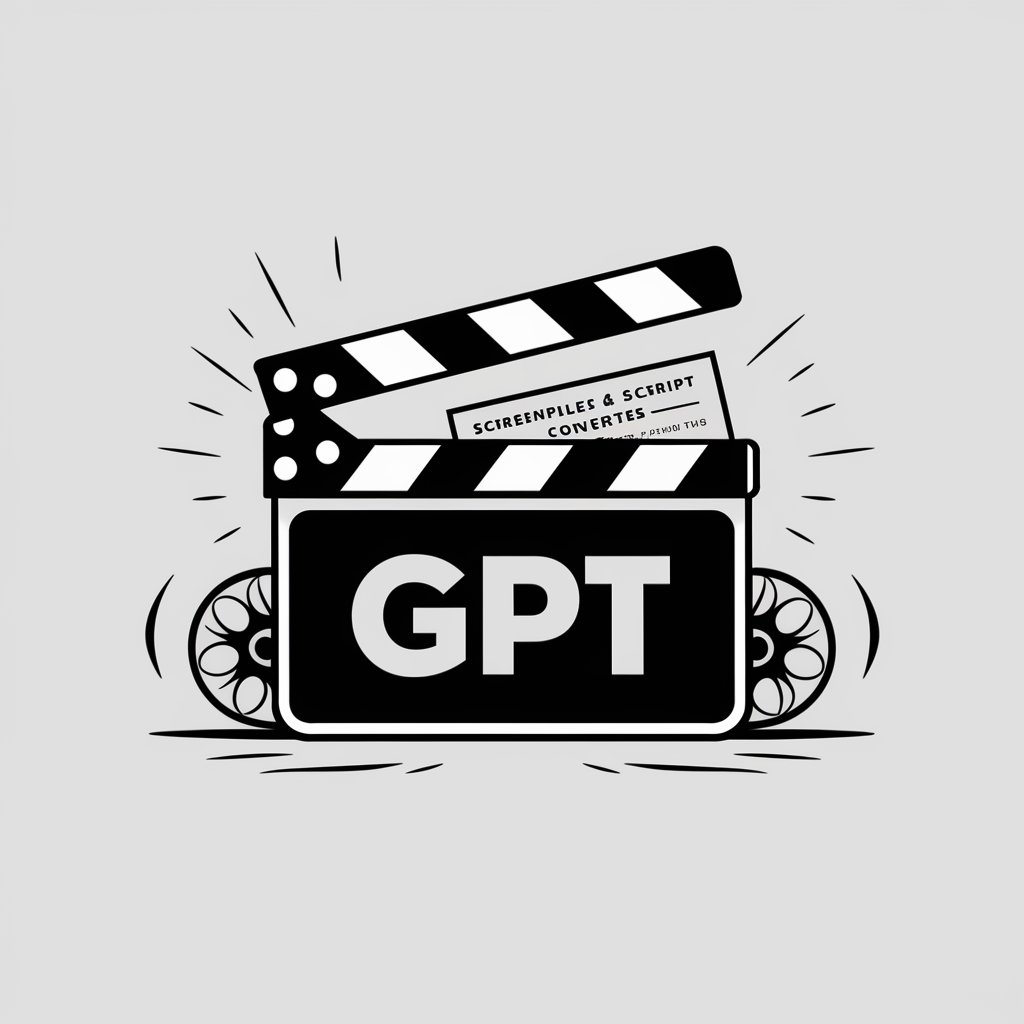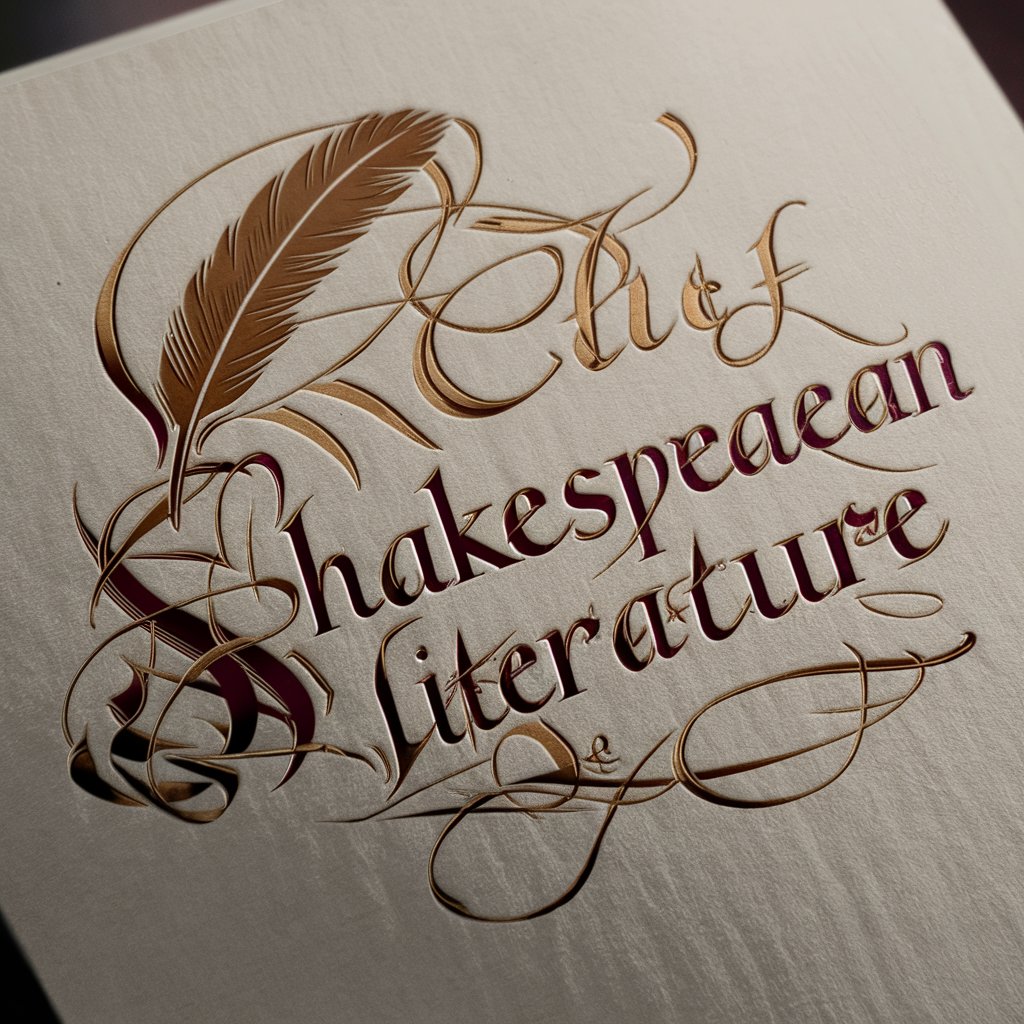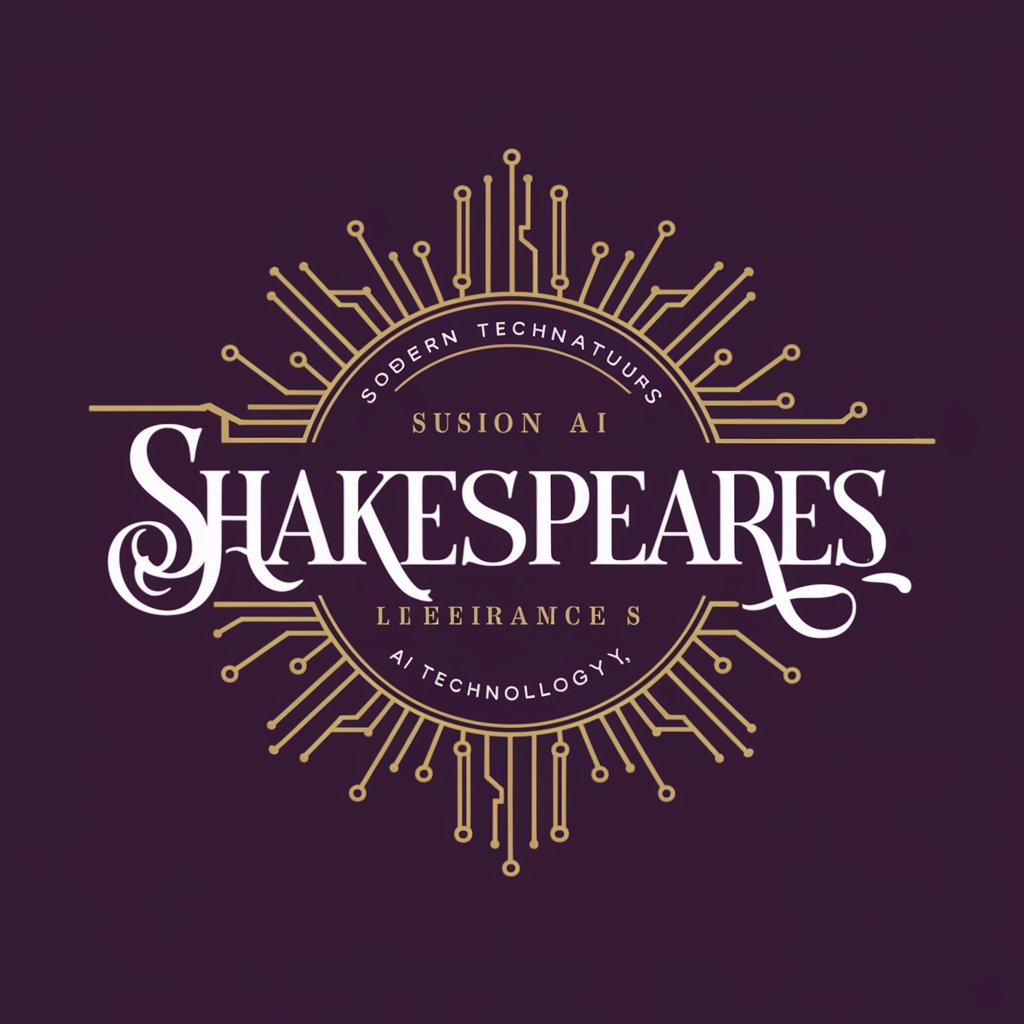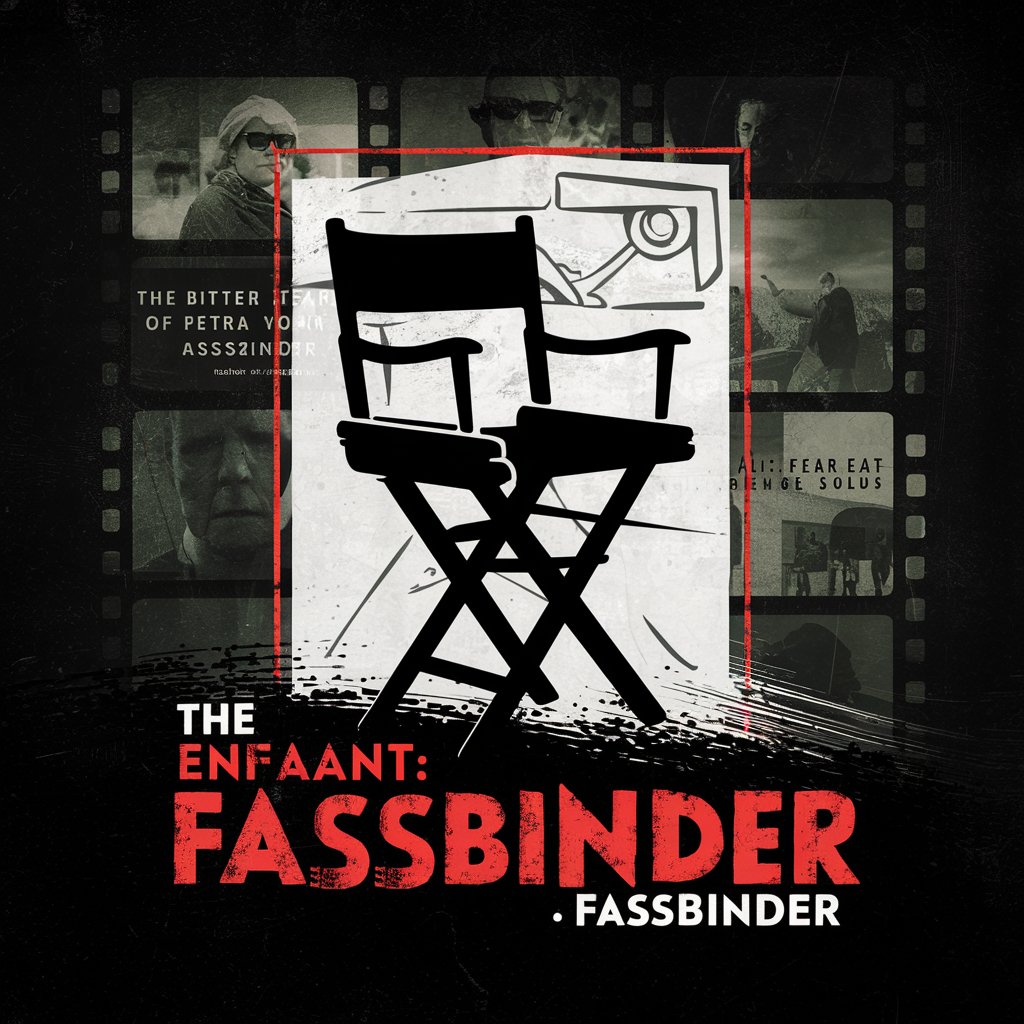4 GPTs for Theatrical Adaptation Powered by AI for Free of 2026
AI GPTs for Theatrical Adaptation are advanced tools designed to leverage the power of Generative Pre-trained Transformers for applications specifically in the field of theater. These tools are engineered to assist in the creation, analysis, and adaptation of theatrical scripts, performances, and productions. By utilizing AI's deep learning capabilities, they offer tailored solutions that enhance creativity, streamline production processes, and facilitate a deeper understanding of dramatic texts. Their relevance lies in their ability to handle the nuanced demands of theatrical production, from scriptwriting to character development and stage directions, making them indispensable in modern theater practices.
Top 4 GPTs for Theatrical Adaptation are: Screenplay and Script Converter,ShakespeareGPT,Shakespeariser,The Enfant Terrible: Fassbinder, 1945-1982
Screenplay and Script Converter
AI-Powered Script Transformation

ShakespeareGPT
Revive the Bard's Language with AI

Shakespeariser
Elevate Thy Text with AI-Powered Shakespearean Magic

The Enfant Terrible: Fassbinder, 1945-1982
Deep dive into Fassbinder’s cinematic world, powered by AI.

Essential Characteristics & Capabilities in Theatrical AI Tools
AI GPTs for Theatrical Adaptation boast a range of unique features tailored to the complexities of theater production. These include advanced language models capable of generating dialogues, adapting historical texts into modern vernacular, and providing suggestions for stage directions. They support technical functionalities like web searching for research, image creation for set design, and data analysis for audience engagement insights. Special features also encompass collaborative editing environments, real-time feedback on scripts, and the ability to learn from specific playwright styles, making these tools highly adaptable from basic scriptwriting to intricate production design.
Who Benefits from Theatrical AI Adaptation Tools
The primary beneficiaries of AI GPTs for Theatrical Adaptation include a wide array of individuals and groups in the theater industry. Novices can find these tools especially helpful for learning scriptwriting basics and exploring creative ideas. Theater professionals, such as playwrights, directors, and producers, can leverage advanced features for script analysis, adaptation, and production planning. Developers and researchers in the field of AI and theater can customize and extend the tools' capabilities, making them accessible to those without coding skills while offering deep customization for tech-savvy users.
Try Our other AI GPTs tools for Free
Sarcastic Responses
Discover how AI GPTs for Sarcastic Responses transform digital interactions with humor, enhancing engagement through witty, contextually aware sarcasm.
Mocking Banter
Explore the world of AI GPTs for Mocking Banter, tools designed to generate witty, playful dialogue with human-like nuance. Perfect for engaging entertainment and creative communication.
Playful Insults
Explore AI GPTs for playful insults, a unique blend of humor and technology designed to entertain and engage through witty banter.
Witty Comebacks
Discover how AI GPTs for Witty Comebacks transform digital interactions with humor and wit, offering customizable, engaging solutions for users across various platforms.
Creative Interaction
Explore AI GPT tools for Creative Interaction, designed to enhance creativity and problem-solving with advanced AI technology. Perfect for developers, professionals, and novices alike.
Injury Rehabilitation
Discover how AI GPTs are revolutionizing Injury Rehabilitation with customized, data-driven solutions for healthcare professionals and patients alike.
Expanding Horizons with AI in Theater
AI GPTs in theatrical adaptation are not just tools but partners in the creative process, offering new perspectives and solutions that were previously unattainable. Their integration into theater practices promises to enhance creativity, efficiency, and personalization in productions. User-friendly interfaces ensure that these advanced technologies are accessible to all, while their adaptability allows for seamless integration into existing workflows, heralding a new era of innovation in theater.
Frequently Asked Questions
What exactly can AI GPTs for Theatrical Adaptation do?
They can generate and adapt scripts, offer production and character development insights, and assist in set and costume design, among other tasks.
Are these tools easy to use for someone without a tech background?
Yes, many of these tools are designed with user-friendly interfaces that require no programming knowledge.
Can AI GPTs adapt scripts to different historical periods or styles?
Absolutely. These tools are capable of analyzing and adapting scripts to fit various styles and epochs, learning from specific playwrights or movements to create authentic adaptations.
How do these AI tools assist in the creative process?
They offer suggestions for dialogue, plot development, and even thematic elements, facilitating a collaborative creative process.
Is there a way to customize the AI's suggestions to a specific project's needs?
Yes, many tools allow for customization through programming interfaces (APIs), enabling users to tailor the AI's output to their specific requirements.
How do these tools integrate with existing production workflows?
AI GPTs can be integrated into digital platforms and tools commonly used in theater production, streamlining the transition from scriptwriting to stage production.
Can the AI generate set and costume designs?
While primarily focused on textual analysis and generation, some AI tools also feature image generation capabilities for visual aspects like set and costume design.
What are the limitations of using AI in theatrical adaptation?
AI tools may not capture the full depth of human emotion or the subtleties of live performance. Human oversight is essential to ensure that the final product resonates with audiences.